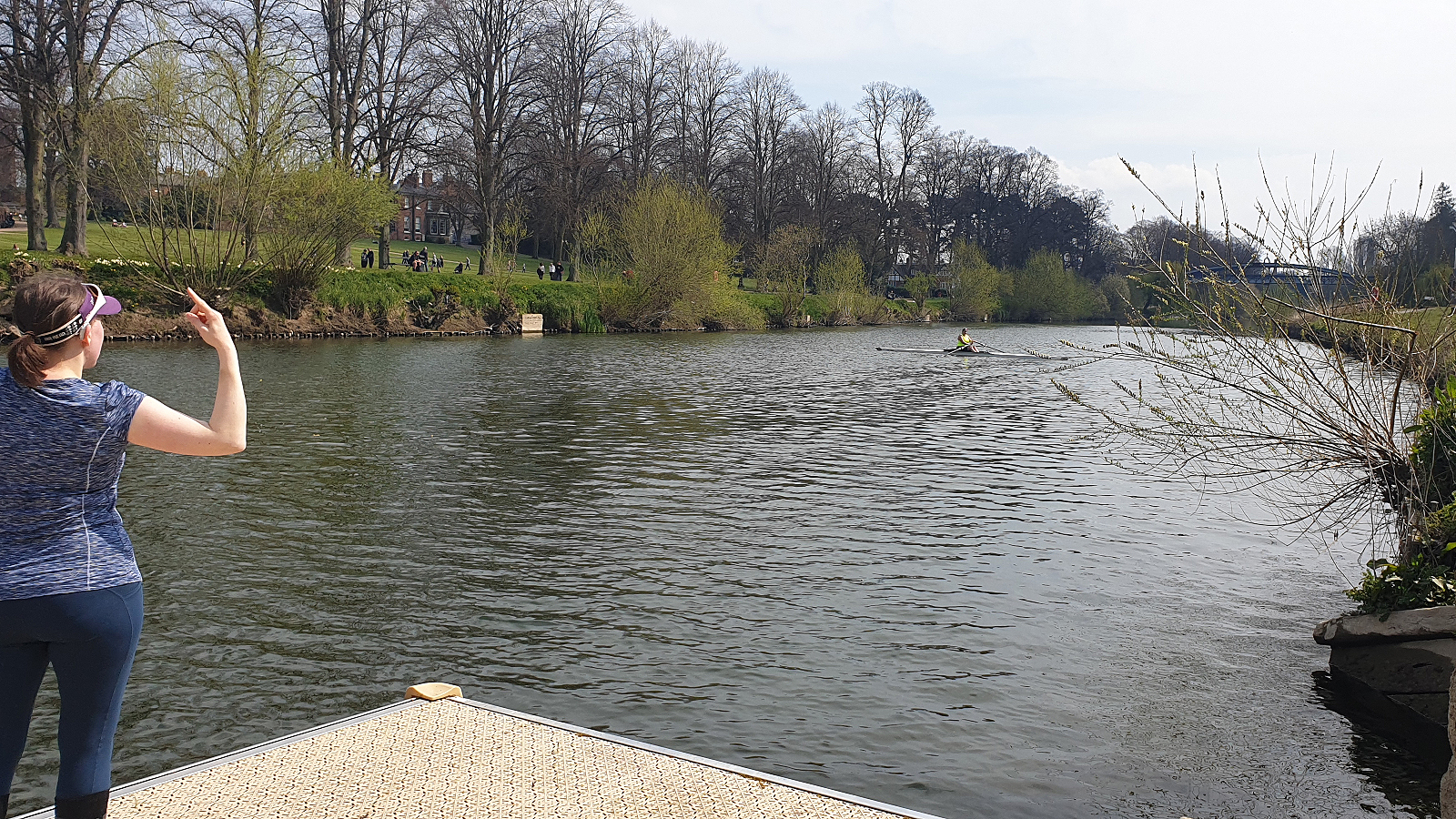Top 10 coaching tips for people who are deaf or hard of hearing
It’s Deaf Awareness Week from 3-9 May, so we’re marking the occasion with some great coaching tips from Kailey Firmin at Pengwern Boat Club

Kailey uses hand signals while coaching a master sculler
Kailey Firmin is a member of Pengwern Boat Club in Shrewsbury and describes herself as profoundly deaf. A latecomer to rowing, Kailey participated in a learn to row course at Pengwern back in May 2017 and says, through sheer luck, she was offered a coaching position with a local school in November 2017.
She qualified as a club coach a year later and is well on her way along a journey to perfection and improved technique that never stops!
Read on for Kailey’s top coaching tips for rowers who are deaf or hard of hearing.
Coaching tips
1 – Before or on the first session, whether it’s a learn to row or a seasoned athlete – discuss their communication needs. Deafness effects everyone differently and therefore their needs are individual too.
2 – Jargon – make sure everyone knows what the rowing jargon is that you may use when on the water.
3 – Before going out on the water discuss the outing plan.
Try not to single out the individual who is deaf or hard of hearing
4 – Agree a set of hand signals or gestures that you can use for key commands. For example, for the following: easy oars, up 2, spin, sit tall.
5 – Remember, when the boat is moving it may not be possible for athletes to hear any comments you are making, especially if you are on a launch. Try and agree places to stop and give feedback and comments within your outing plan.
6 – Try to make your communication visual, use your body to explain what you mean and remember if they lip read they need to be close enough to read your lips. Don’t forget to position yourself somewhere where the sun is not behind you.
7 – Make sure any instructions or feedback are understood by the whole crew – try not to single out the individual who is deaf or hard of hearing. Decide on a signal (like a thumbs up) that is clear for everyone.
8 – Keep crew chat to a minimum – there is a much greater chance of hearing the important things if there is nothing else to distract.
9 – Do ask for feedback in the debrief, 1-1 or by email/text after the session, so nobody feels guilty talking about anything that didn’t work.
10 – Be aware that hearing equipment is expensive and needed for everyday life. If a rower has any hearing technology don’t assume they will, and should, take it on the water.
If someone looks puzzled, take a moment to relay some of the general comments, jokes, and especially any tantalising gossip!
Deaf awareness around the club
COVID-19 rules make communication a far greater challenge when face masks are used. Be mindful that some people will rely on lip reading and clubs should consider using clear masks if they have deaf or hard of hearing members.
Here are some more areas to be aware of:
1 – When socialising at a table, try to pick a round one to give everyone the best chance of following the conversation.
2 – Try to talk normally, not too fast, and nice and clearly, plus don’t cover your month.
3 – Make sure rowers who are deaf and hard of hearing feel included! One of the great benefits of rowing is the social activity and it can be easy to miss out on conversations and general chit-chat and feel excluded. If someone looks puzzled, take a moment to relay some of the general comments, jokes, and especially any tantalising gossip!
4 – Deaf people are still people and using spoken English may not be their first or preferred language for some.
There are lots of good quality resources online – or why not try to learn some sign language? Click here for some tips from UK Deaf Sport.






